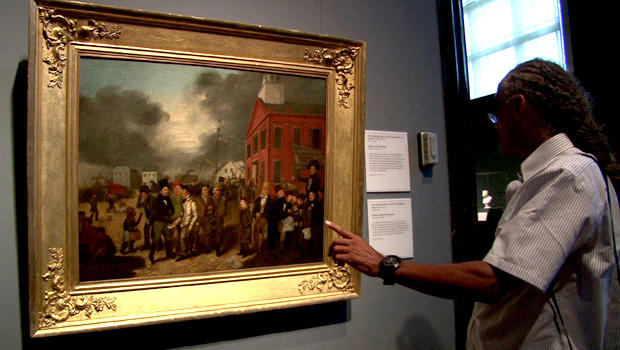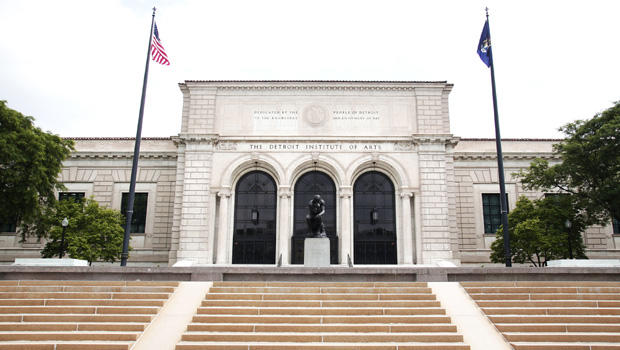Detroit art caught in bankruptcy battle
(CBS News) Detroit, which became the largest city to declare bankruptcy in U.S. history Thursday, is home to one of the most prestigious collections of art in the world. And one of the options on the table to deal with its crippling debt is for all of that to be sold. But it's not so simple.
To Rod Spencer, the Detroit Institute of Arts is priceless.
"The DIA is the history of Detroit, that's what it means to me," he said.
Spencer has been coming at least once a month for 25 years. But now, the city is talking about selling everything from works by Van Gogh, to Picasso, to the original Howdy Doody doll.
"Will it go to a private collection? Where would this go?" Spence said.
Detroit's emergency manager, Kevyn Orr, said all assets must be on the table to appease the city's creditors.
Experts consulted by the Detroit Free-Press valued all the works at $2.5 billion -- around 10 percent of the city's potential long-term debt of $20 billion.
Art appraiser Betty Krulik said, however, it would be challenging to sell the work quickly.
"It would just flood the market," she said. "There are only so many billionaires that could absorb all of that material."
Gov. Rick Snyder: Government bailout is the wrong answer for Detroit
Aretha Franklin reacts to Detroit's bankruptcy
Detroit residents worry about their future after city declares bankruptcy
Motor city bankruptcy: Repercussions of Detroit's filing
There's also the question of whether it's even Detroit's art to sell.
Michigan's attorney general issued an opinion that the collection is "held by a charitable trust for the people of Michigan" -- meaning the city doesn't really own it. The citizens do.
"Detroit is trying to rebuild," said Ford Bell of the American Alliance of Museums. "And the museum absolutely can be part of that. The collection is there to make it a great city, to provide that foundation for the city's recovery."
To art lover Rod Spencer, the answer is clear.
"We're talking about selling history," he said. "How can you sell family history?"


